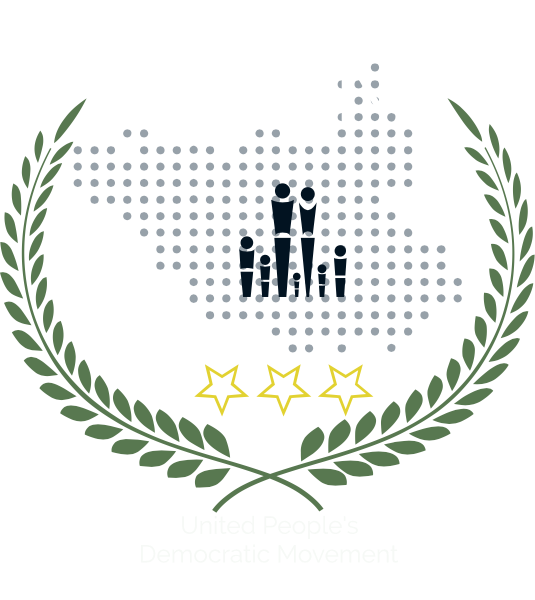The Voluntary Civil Society Taskforce on Implementation of the Peace Agreement
Press Release
June 15, 2017
The Voluntary Civil Society Taskforce on Implementation of the Peace Agreement (the Taskforce) organized 10 consultative meetings on the national dialogue in Juba and in the states. These meetings were meant to increase public awareness on the concept of the National Dialogue, discuss and compile citizens’ opinions and recommendations on this national process, including its standards, agenda, timeframe and the roles of those consulted in the conduct of the national dialogue. These meetings were conducted from February to June 2017 and involved about 671 South Sudanese citizens comprising women, youth, and people with disabilities; civil society and faith-based groups.
The Taskforce observes as positive for the national dialogue process, the decision of the President to relinquish his position as patron of the National Dialogue, unilateral declaration of ceasefire, involvement of the media in the ongoing meetings of the National Dialogue Steering Committee and plans by the Steering Committee to consult with all South Sudanese stakeholders.
Public consultations conducted by the Taskforce and statements released by various opposition political forces reveal that South Sudanese generally accept dialogue as a possible peaceful means to resolve the violent conflict in the country.
However, citizens expressed that the effectiveness of the National Dialogue may be compromised by several prevailing factors in the country including limitations in the freedom of expression, non-participation of opposition groups, continued hostilities, failure to implement agreements, composition and impartiality of members of the National Dialogue Steering Committee, failure to release political detainees, funding limitations and lack of confidence in the parties to the conflict.
Based on the views of citizens expressed in the consultative meetings, the Taskforce makes the following recommendations:
- The National Dialogue Steering Committee should take steps necessary to build public confidence in the National Dialogue process. The committee should assure the public of its independence from political interference, free participation of all stakeholders and guarantees of implementation of the resolutions of the national dialogue.
- The national dialogue should be truly inclusive and open to all South Sudanese citizens within and outside the country including those in camps for internally displaced persons and refugee settlements in in Uganda, Kenya, Ethiopia, Democratic Republic of Congo and Sudan. South Sudanese diaspora communities around the world and all opposition forces should be allowed to participate in the process.
- The agenda of the national dialogue should reflect the context of South Sudan. Such an agenda should focus on major areas of national concerns in the country to include, national vision, identity and unity, security sector reforms, economic sector reforms, historical community grievances, distribution of natural resources, and system of governance among others.
- The promise of the President to “…guarantee safety and freedom of all the actors who are going to participate in the National Dialogue, including those who are currently out of the country, some of whom are opposed to the government” should be implemented in letter and spirit. In the spirit of the National Dialogue, the President should take steps to:
- Reach out to leaders of the South Sudanese groups who are still opposing the government;
- Actualize the release of all political detainees as a gesture of goodwill for an inclusive and participatory National Dialogue process;
- Guarantee the security and freedom of expression for civil society actors and all other stakeholders including journalists.
- The unilateral ceasefire declared by the President on April 22, 2017 should be enforced. All armed opposition groups should also declare and enforce ceasefire to create a peaceful and conducive environment for South Sudanese to dialogue. Government and all opposition forces should allow free movement of patrol teams of the United Nations Mission in South Sudan and the Ceasefire and Transitional Security Arrangement Monitoring Mechanism to monitor and report on compliance or violations of the ceasefire
- All South Sudanese opposition political forces both within and outside the country should embrace the National Dialogue as a peaceful means to end the prolonged violent conflict in our country and to participate in the process.
- Given that some stakeholders feel unsafe to participate in the national dialogue within the country, the National Dialogue Steering Committee should identify locations outside the country for preliminary consultations with all opposition groups. The meetings should focus on their participation, ceasefire, guarantees of safety and their eventual return to South Sudan to participate in the national dialogue processes.
- The international community should support the National Dialogue process in a manner that enhances inclusive participation of all South Sudanese stakeholders and full implementation of the Peace Agreement.
- The Steering committee should avoid public utterances and conduct that would otherwise jeopardize their independence, create public mistrust and undermine their credibility and neutrality in leading a balanced and credible National Dialogue process.
- All government and opposition officials should refrain from inflammatory statements and provocative actions that contradict the spirit of a genuine national dialogue process.
In conclusion, the paramount demand of the people of South Sudan, as observed in the consultative meetings is peace – peace that silences the guns, guarantees no return to violence and creates a conducive environment for all citizens to live in safety, liberty and dignity. The Taskforce therefore calls on the National Dialogue Steering Committee and Secretariat to conduct a genuine National Dialogue that meets these aspirations of South Sudanese citizens, especially the suffering masses.
Thank you.
